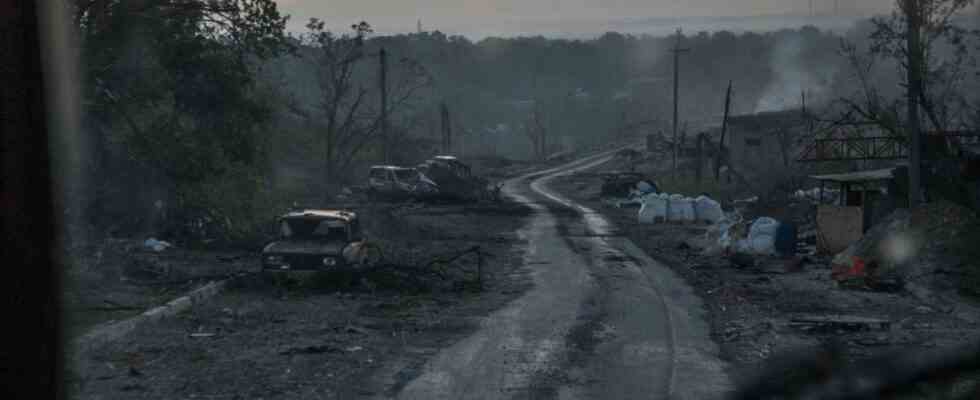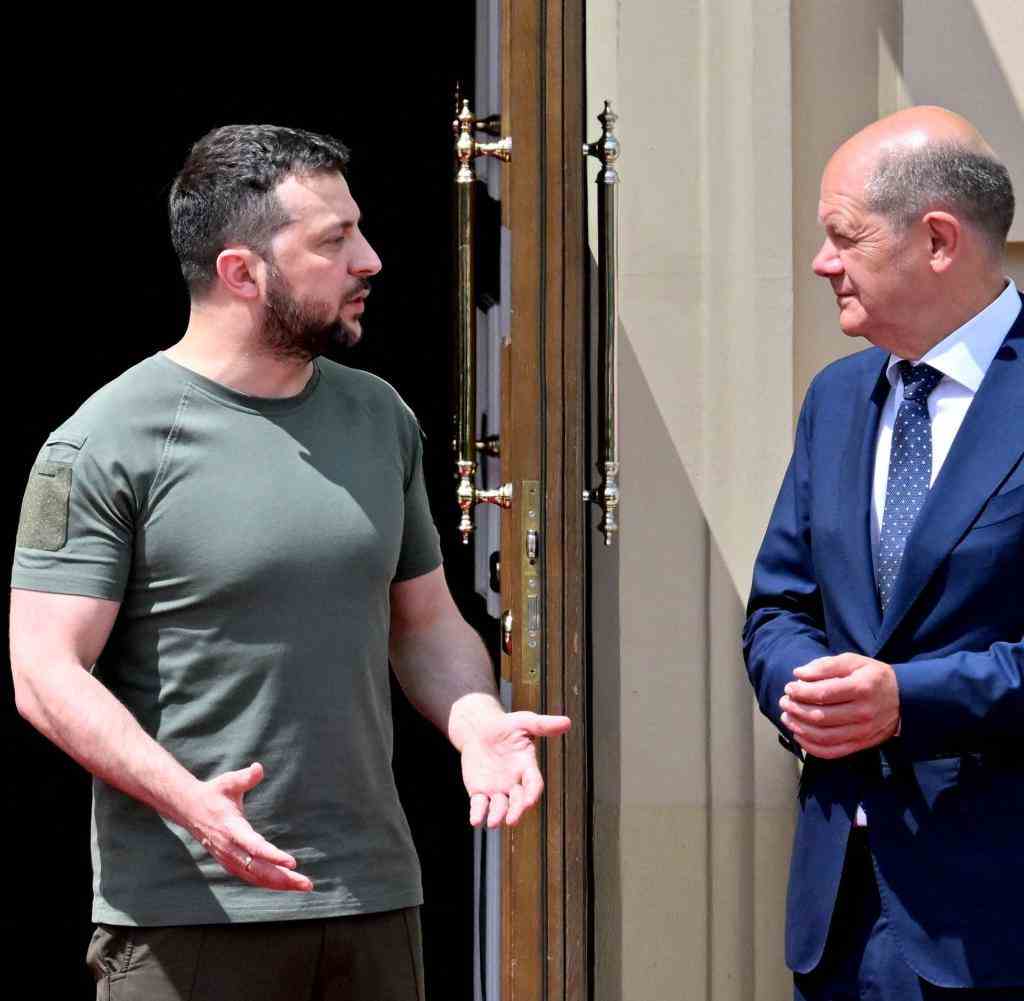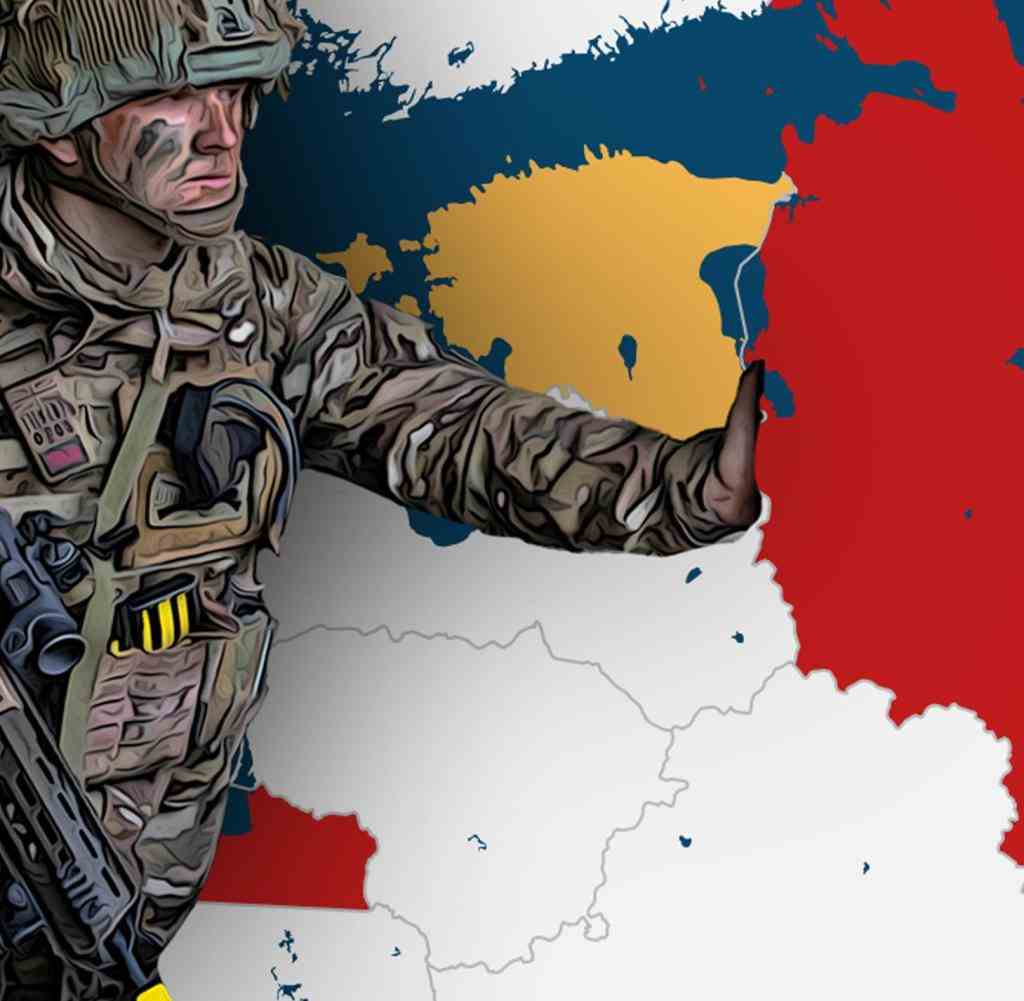DAccording to British intelligence experts, Russia’s difficulties with its advance in Ukraine are also due to the weaknesses of its air force. It is very likely that these are one of the most important factors behind the very limited Russian successes, said a British Ministry of Defense update on Monday. So far, the air forces have tended to avoid risks in their maneuvers and have not been able to achieve air supremacy. This has increased the pressure on the Russian ground forces, which are now increasingly exhausted.
According to British estimates, the Russians have combat-capable aircraft, but are not properly trained for modern air force operations. For years, Russian air force training was said to have focused more on impressing high-ranking military officials than on training dynamic deployment scenarios for different troops.
Since the start of the Russian war of aggression around four months ago, the British government has regularly published intelligence information on the course. Moscow accuses London of a targeted disinformation campaign.
According to US military experts, Russia’s attack strength is not sufficient for the capture of Sieverodonetsk
According to the latest analysis of Institute for the Study of the War (ISW) Russia’s superiority in artillery armament is not enough to capture the administrative center Sieverodonetsk in eastern Ukraine. “Russia’s concentrated artillery capability, coupled with arguably weakened infantry units, remains insufficient to make Russian advances in Sieverodonetsk,” the military experts said. Russian troops continued to fight for control of the city but made little progress on Sunday.
According to the experts, Russia is likely to continue trying to encircle the former city and to cut off supplies for the remaining Ukrainian forces, who are largely holed up in the Azot chemical plant. However, there is currently little progress on this project. In addition, Moscow is preparing an offensive Sloviansk before. The Sloviansk-Kramatorsk area is considered the center of the Ukrainian defense forces in the Donbass region.
According to the ISW, Moscow is itself hindering the success of its invasion by continuing to speak of a “special military operation” instead of a war. This prevents Russia from mobilizing to generate more forces. In addition, the Kremlin lacks the legal means to punish soldiers who refuse to be deployed.
The situation at the chemical plant in Severodonetsk is “hell”
Meanwhile, the situation in the last bastion of Ukrainian troops in the embattled city of Sieverodonetsk in Luhansk is becoming increasingly desperate, according to the governor. “It’s just hell there,” reported Governor Serhij Hajdaj about the fighting at the Azot chemical plant. “Everything is on fire, the shelling doesn’t stop for even an hour.”
Around 500 civilians are entrenched in the chemical plant in the Sievarodonetsk industrial zone with an unknown number of militants. It is the only place in the city of Sieverodonetsk that the Russians do not yet have under their control, Hajday wrote to the AP news agency. Moscow is constantly sending new reinforcements there.
Source: Infographic WORLD
The Ukrainian authorities also acknowledged the loss of the village on Monday Metyolkine, southeast of Sieverodonetsk. “Control of Metyolkine near Sieverodonetsk has been lost,” military governor Hayday said on his Telegram channel.
Also the sister city of Seyerodonetsk, Lysychansk, on the west bank of the river Severskyi Donets came under fire. The evacuation operations in the city for civilians were underway. According to Hajdaj, there are also tough battles around the suburbs Toshkivka and Ustynivka“because the orcs want to make a breakthrough there and have concentrated large amounts of military technology there for that purpose,” he wrote.
Ukrainian officials often use the derogatory term “Orcs” from the “Lord of the Rings” trilogy for the Russian troops.
One injured in renewed shelling of Russian border region
In the West Russian Bryansk region According to official information, a man was injured by artillery fire on the border with Ukraine. “This morning the locality Susemka was fired upon by Ukrainian forces,” said the governor of the Bryansk region Alexander Bogomas in his Telegram channel. One person was “harmed” and several “objects” were damaged.
The injured person is said to be an employee of the local energy supplier. He received minor skin injuries from splinters. One single-family home and two apartment buildings were damaged. In addition, the power supply of the village was partially paralysed.
Russia, which launched a war of aggression against Ukraine in February, has been lamenting the shelling of its own border regions for weeks. In this context, Bogomas’ formulation is piquant. “The shelling was in retaliation,” but the source of the fire was quickly neutralized, the governor wrote. It follows that previously Ukraine was shelled from Russian territory.
Selenskyj warns of even more violent Russian attacks in Ukraine
Meanwhile, Ukrainian President Volodymyr Zelenskyy warns of even more violent Russian attacks in Ukraine. “Of course we expect Russia to increase its hostile activity this week,” Zelenskyy said in his evening video message on Sunday evening. He added: “We are preparing. We are ready.”
The Ukrainian President also reiterated the importance of the pending decision by EU member states on his country’s possible candidate status. Few decisions have ever been “so fateful for Ukraine,” Zelensky said. “Only a positive decision is in the interest of all of Europe,” he added.
“Kick-off Politics” is WELT’s daily news podcast. The most important topic analyzed by WELT editors and the dates of the day. Subscribe to the podcast at Spotify, Apple Podcasts, Amazon Music or directly via RSS feed.



